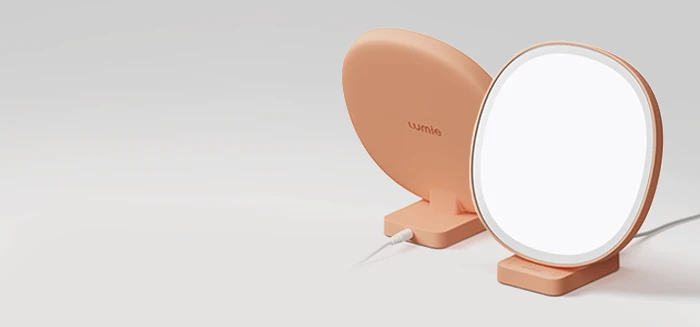Research Related to Women's Health

An open trial of morning light therapy for treatment of antepartum depression
Am J Psychiatry. 2002 Apr;159(4):666-9
After 3 weeks of treatment (using a 10,000 lux bright light for 60 minutes a day), mean depression ratings improved by 49%. Benefits were seen through 5 weeks of treatment. There was no evidence of adverse effects of light therapy on pregnancy. These data provide evidence that morning light therapy has an antidepressant effect during pregnancy. A randomised, controlled trial is warranted to test this alternative to medication.
About 5% of pregnant women suffer from major depression. Whilst anti-depressants work well, for obvious reasons, it would be desirable to find an equally effective treatment that would not expose the developing baby to drugs.
A controlled study of light therapy for PMS
SLTBR Abstracts. 1997 June
14 patients meeting DSM-IIIR criteria for (PMS) underwent a 6 cycle study. During the last week of each treatment cycle patients were treated at home using a bright lightbox or placebo light for 30 minutes between 19:00(7pm) and 21:00(9pm). Following the bright light treatment patients were very much improved in 89% of the cycles. The therapeutic effects were noted in both mood and physical symptoms.
Morning versus evening bright light treatment of late luteal phase dysphoric disorder (i.e. PMS)
Am J Psychiatry. 1989 Sept;146(9):1215-1217
Six women with (PMS) had a significant reduction in depressions after treatment with evening, but not morning, bright light. Bright light may offer an alternative to the pharmacological treatment of pre-menstrual disorders.
Treatment of a patient with seasonal Pre-menstrual Syndrome
American Journal of Psychiatry. 1987 Jun;144(6):762-6
The present authors identified a 24 year old woman who had pre-menstrual syndrome only in the autumn and winter and was virtually asymptomatic during the spring and summer. On the basis of previous experience with SAD, she was treated with bright artificial light which reversed her symptoms




